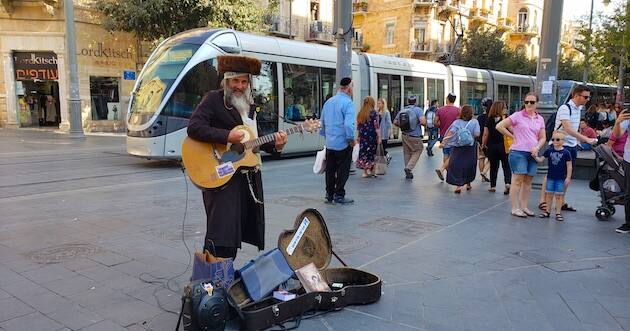
Jerusalem isn’t the sleepy city built around tourism it once was. A new report finds that it remains Israel’s most populous metropolis and now competes with glitzy Tel Aviv for the high tech and start-up industry.
As Jerusalem Day approaches, this year on May 9, a study by the Jerusalem Institute for Policy Research finds it has a lot to celebrate including approaching 1 million residents.
READ: Tour Israel with Metro Voice
At the end of 2020, the capital’s population comprised 952,000 residents, according to the study, with an average age of 24, compared to the national average of 30. The figure in Tel Aviv was 36, while in Haifa it was 38.
The Jerusalem tech and overall economy is the second-largest in Israel, after Tel Aviv, according to the study. Some 344,300 Jerusalemites are employed, which is 9 percent of all those employed in the country. The city’s high-tech industry, known as the Silicon Wadi, has grown exponentially since 2015. The Hebrew University of Jerusalem had the most Ph.D. students in the country.
The city is currently home to over 405 active tech companies which is a 102% growth since 2012, according to new data released by Tel Aviv-based non-profit organization Startup Nation Central (SNC).
in the year before Covid, $233.5 million was invested in Jerusalem-based companies and startups, a 21% increase from the year prior. The city also prides itself on 22 tech exists, meaning companies that were later purchased by the likes of Google, Amazon, Dell and others. Total investments in Jerusalem-based companies equaled $1.6 billion, according to SNC’s report. Israel’s largest tech exit in history was Intel’s 2017 acquisition of Jerusalem-based autonomous car company Mobileye for more than $15 billion.
It’s one of the reasons so many young people are moving to the city revered by three religions.
“The statistical yearbook contains important information pertaining to all of Jerusalem’s strata, all its neighborhoods. East and west, old and new, religious and secular, Jewish and Arab,” said President Rueven Rivlin.
“Jerusalem’s future is also the future of the State of Israel. It is here, in the city that comprises the full range of Israel’s demography in all its richness, that we need to find a way to create a dialogue, to connect, to cooperate,” he added.
“The year of COVID-19 and recent events demonstrate just how much Israel’s capital is a multi-faceted and multi-varied city,” said JIPS director-general Lior Schiller.
“Developments and events in Jerusalem have political significance and make an impact throughout the entire country,” said Schiller. “In many respects, the developments and trends in the city are a prelude to what will transpire throughout Israel in the coming decades. In this sense, Jerusalem is Israel’s ‘national laboratory.’ ”
Follow Metro Voice on Facebook and get updates on Jerusalem tech and history articles.
–JNS and Metro Voice








